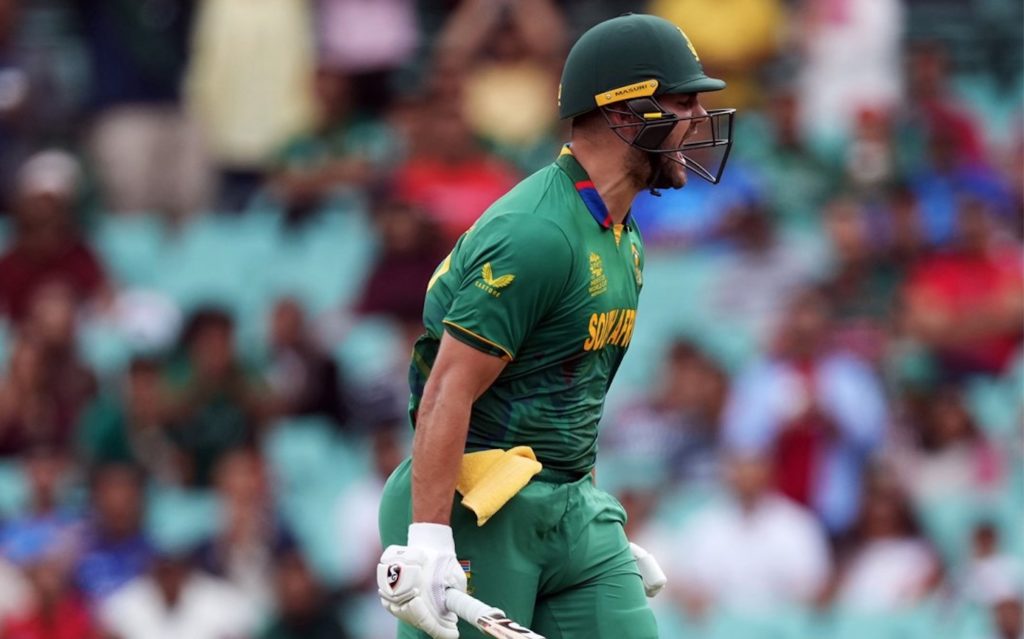Back-to-back centurion Rilee Rossouw admits he thought not so long ago that he might never play for the Proteas again.
The 33-year-old smashed 109 off 56 balls against Bangladesh at the T20 World Cup in Sydney on Thursday, having made 100* off 48 balls in his previous knock against India.
In July, he scored 96* off 55 balls against England.
Rossouw was part of a swathe of South African professional cricketers who took up Kolpak deals to play county cricket in England in the mid-to-late 2010s.
It was attractive to non-English cricketers because it allowed them to play in the County Championship without being registered as an overseas professional – all you had to do was give up your right to represent your country.
Rossouw became one of the most devastating batsmen on the T20 circuit, plying his trade in England, Pakistan, Bangladesh, Australia and the Caribbean.
However, he always knew that, no matter what he did on the field, he could never play for South Africa again. That was until Brexit ended Kolpak agreements last year.
Rossouw continued to be impressive and, despite being a relatively elder statesman of the cricketing world at 33, was called up by the Proteas for the 2022 T20 World Cup where he would smash the tournament’s first century.
HIGHLIGHTS: Proteas vs Bangladesh
“When you give up your right to play for your country, you expect that’s going to be your last chance,” said Rossouw after the match against Bangladesh.
“Every moment you play for your country, you must cherish. It’s a super-proud moment, not just for me but for my family back home.
“It’s been a great journey and a long journey, but it’s not finished yet and hopefully we can take it one game at a time and I’ll get another opportunity.
“Sometimes things go your way, and this year has been an unbelievable rollercoaster ride for me. I’m so happy and proud to be sitting here, and I never thought about it in a million years.”
WIN: Braai kit, signed bat and signed jersey
Rossouw says the secret to his success is keeping things simple, both technically and mentally.
”It doesn’t matter what stage it’s on, whether it’s a World Cup or domestic cricket, I just try to see the little white ball and hit the little white ball. It doesn’t matter who is running in.
“People have made names for themselves in T20 cricket so you have to take that into consideration, but at the end of the day somebody is bowling the ball to you and you’ve just got to hit it.”






